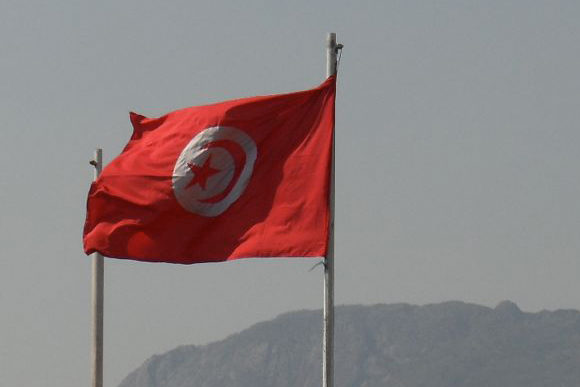
Nov 7, 2023 | News
Arbitrary restrictions and excessive government control.
(Tunis, 7 November 2023) – The draft law on associations submitted by 10 parliamentarians to the Tunisian Parliament on 10 October 2023 would violate the right to freedom of association and endanger civic space in Tunisia if adopted as currently formulated, 8 rights groups said today.
البيان باللغة العربية على هذا الرابط
The draft law, if passed, would replace Decree-Law 2011-88 on associations, which enabled the emergence of a diverse civil society in the aftermath of Tunisia’s 2011 revolution. As presently drafted, it threatens to end more than a decade of work by independent groups. According to official data, over 24,000 civil society organizations are currently registered with the Tunisian authorities, although it remains unclear how many are active today. If adopted in its current form, the draft law would grant the government pervasive control and oversight over the establishment, activities, operations and funding of independent groups, which are one of the last remaining counterweights to President Kais Saied’s autocratic rule.
While the text claims to maintain a notification system for establishing new associations, it would actually introduce a thinly disguised registration system, granting a department under the Prime Minister’s Office the authority to deny a group the right to operate within a month after of registering (article 9.2). Without being required to provide any reasons, the government would also be able to petition the judiciary at any time requesting the cancellation of an association’s registration (article 9.3).
In addition, new organizations would not be allowed to operate until a government-headed “administration of associations” publishes a notice in the Official Gazette, leaving open the possibility of denying a group’s registration. At present, under Decree-Law 2011-88 on associations, an association may begin operating once the representative of the association has notified its registration to the Official Gazette.
Under the draft law, international organizations would be required to obtain prior authorization to register from the Foreign Affairs Ministry (articles 8 and 19). Without setting conditions or deadlines for any such a process, the draft law empowers the Ministry to issue temporary authorizations and to revoke and suspend them at its own discretion (article 20). As a result, international organizations may be arbitrarily denied registration for any reason and without due process, the groups said.
In 2012, the United Nations Special Rapporteur on the rights to freedom of peaceful assembly and association’s report on best practices related to the right to freedom of association recommended a “notification procedure”, rather than a “prior authorization procedure” requesting the authorities’ approval to establish an association as a legal entity. The 2017 Guidelines on Freedom of Association and Assembly in Africa of the African Commission on Human and Peoples’ Rights stipulate that “registration shall be governed by a notification rather than an authorization regime, such that legal status is presumed upon receipt of notification” and that the administrative body overseeing registration should carry out its functions “impartially and fairly.”
The draft law’s preamble states that associations must operate in accordance with the “principles of national orientation,” and must not “violate laws related to good morals,” “disturb public security,” “undermine the unity of the national territory and the republican system,” or “violate national sovereignty.” Such terms are vague, imprecise, arbitrary and overly broad and, as such, do not comply with the principle of legality. As a result, these concepts are open to broad interpretations and the authorities could use them to justify arbitrarily restricting or closing associations that displease them, the groups said.
The draft law places national organizations under “the supervision and control” of the Ministry relevant to their main area of work and international organizations under Prime Minister Office’s supervision (article 6). The current draft law does not specify what such “supervision and control” entail. It also requires associations to inform the pertinent Ministry of any planned activities (article 13).
The draft law also gives rise to concern about surveillance as it empowers the authorities to establish a digital database of associations and volunteers (article 14).
If the draft law is adopted in its current form, then the authorities may interpret its many vague provisions to ban or dissolve associations. The establishment of associations on religious or ethnic grounds is forbidden in the draft law. In addition, the qualification that a group’s work must be “voluntary” may be interpreted as a ban on paid labour by non-profit groups (article 2). The draft text further provides that the Prime Minister’s Office can “automatically” dissolve any group “suspected of terrorism” or that has a “terrorist background” (article 24), without judicial review.
This text also dangerously conflates associations with unions (article 15), which are currently separately governed by the Tunisian labour law, without providing any specific guarantees or sufficient protections for union rights.
National associations would have to obtain prior approval from the Prime Minister’s Office before receiving foreign funding (article 18). Associations that fail to comply with this requirement would risk immediate suspension or dissolution (article 24).
The draft law requires all existing associations to “rectify” their situation in accordance with the new law within a year of the law’s publication.
In 2013, the Special Rapporteur on the right to freedom of peaceful assembly and of association’s report affirmed that a civil society organization’s access to funding from domestic, foreign and international sources was “an integral part of the right to freedom of association.” Requiring groups to get prior government approval to receive foreign funding without specifying the grounds for refusal is inconsistent with the principle of legality and constitutes an arbitrary interference with the right to freedom of association.
Under Article 38 of the Guidelines on Freedom of Association and Assembly in Africa, governments may neither impose blanket bans on foreign funding for civil society groups nor require prior government authorization to receive it.
Decree-Law 2011-88 on associations provides sufficient guarantees and procedures to ensure that civil society groups’ funding be transparent and law compliant, the groups said. The draft law’s foreign funding provisions are open to abuse and may be used to punish and reject funding for organizations critical of the government.
In February 2022, a draft law on associations prepared by the executive that threatened human rights safeguards was leaked and denounced as restrictive by the Tunisian civil society. Shortly after, on 24 February 2022, President Saied announced his intention to “prevent foreign funding to associations.” In light of this, UN experts expressed concern over the then draft law in a communication to the Tunisian authorities in April 2022, to which the Tunisian government responded in June 2022, confirming their intention to amend Decree-law 88.
Since 25 July 2021, President Saied has dismantled Tunisia’s democratic institutions, undermined judicial independence, stifled the exercise of freedom of expression and repressed dissent.
Tunisia is obliged to respect, protect, promote and fulfill the right to freedom of association, guaranteed by Article 22 of the International Covenant on Civil and Political Rights and Article 10 of the African Charter on Human and Peoples’ Rights. Restrictions on the exercise of this right may be permissible only when they are prescribed by law and necessary in a democratic society; that is, using the least restrictive means possible and reflecting basic values of pluralism and tolerance.
“Necessary” restrictions must also be proportionate; that is, carefully balanced against the specific reason for imposing them in the first place. In addition, they may not be discriminatory, including on the grounds of national origin or political opinion or belief.
The Tunisian authorities should refrain from adopting the proposed draft law and, instead, should commit to safeguarding the right to freedom of association as enshrined in Decree-law 88 and under international human right law binding on Tunisia, the groups said. The authorities should ensure that associations are able to operate without political interference, intimidation, harassment or undue restrictions.
Signatories:
1-International Commission of Jurists (ICJ)
2-Euromed Rights
3-Human Rights Watch (HRW)
4-Avocats Sans Frontières (ASF)
5-Access Now
6-World Organisation Against Torture (OMCT)
7-Tahrir Institute for Middle East Policy (TIMEP)
8- International Service for Human Rights (ISHR)
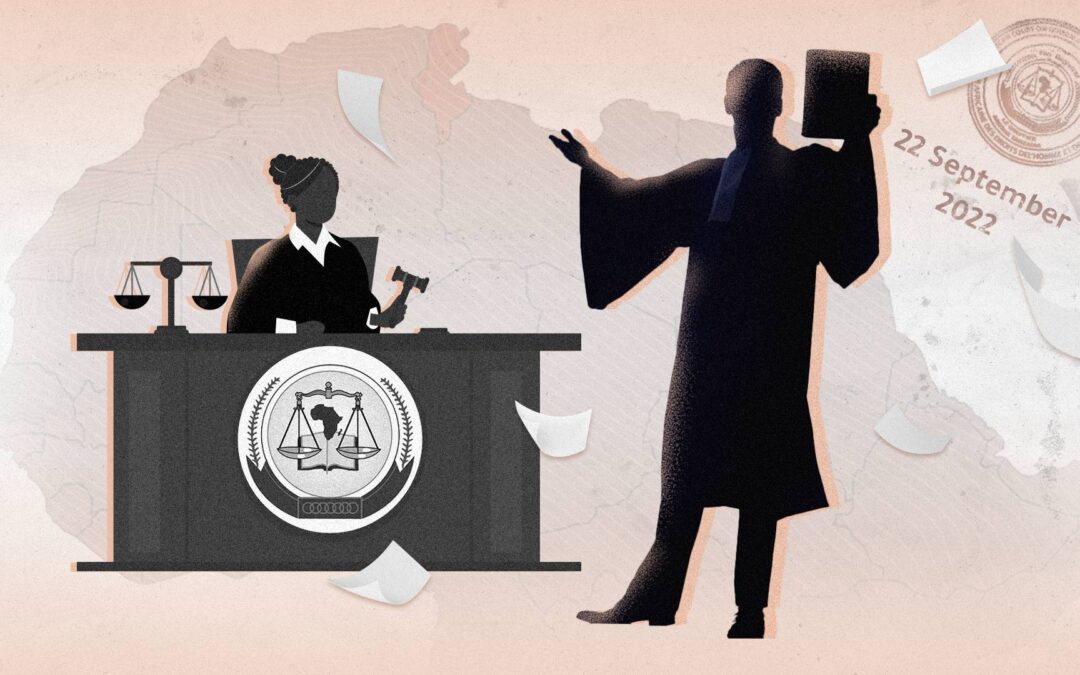
Nov 6, 2023 | News
Today, the African Court of Human and Peoples’ Rights (AfCHPR) opens its 71st Ordinary Session. To mark the occasion, the International Commission of Jurists (ICJ), in collaboration with inkyfada, looks back at AfCHPR’s September 2022 judgement against Tunisia, in which it ordered the republic to return to constitutional democracy and establish an independent constitutional court. The ICJ examines the impact of the judgement on human rights in Tunisia, and how individuals can operationalize the AfCHPR to challenge the curtailment of fundamental freedoms, judicial independence and rule of law in Tunisia.
ICJ’s questions and answers:
It has been more than a year since the African Court on Human and People’s rights issued its judgment in case No. 017/2021, “Ibrahim Ben Mohamed Ben Brahim Belguith v. Republic of Tunisia”, of 22 September 2022. The case was brought by Mr. Belguith, a national of Tunisia and a lawyer, who complained of violations of his rights under the African Charter on Human and Peoples’ Rights and other human rights instruments as a result of the promulgation of several Tunisian presidential decrees adopted under the “state of exception” pursuant to article 80 of the 2014 Constitution since 25 July 2021. In this judgment, the African Court ordered Tunisia to repeal these decrees, to return to constitutional democracy within two years and to ensure the establishment and operation of an independent constitutional court within the same period.
What does this judgment mean and why is it important for the rule of law and human rights in Tunisia? The ICJ provides answers in the Q&A below:
-
- What is the African Court on Human and Peoples’ Rights?
* The African Union
* The African Charter on Human and Peoples’ Rights
* The African Commission on Human and Peoples’ Rights
* The African Court on Human and Peoples’ Rights
* Tunisia’s adherence to the African Human Rights System
-
- Why was the African Court seized of the situation in Tunisia? Contextual overview
* President Kais Saied’s power grab of 25 July 2021
* The absence of a Constitutional Court
-
- What did the 22 September 2022 judgment rule?
* How the African Court came to rule on the matter: the application
* What the judgment ruled:
-
- What are the next steps?
* Implementation
* Other complaints against Tunisia pending before the African Court
Download the full Q&A in English here
Download the full Q&A in French here
Download the full Q&A in Arabic here
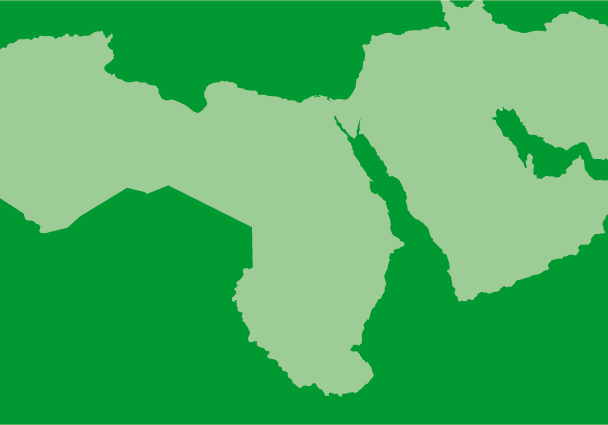
Oct 19, 2023 | News
The International Commission of Jurists (ICJ) condemns the strike on al-Ahli hospital in the Gaza Strip on 17 October 2023, which according to the Palestinian Health Ministry killed more than 500 Palestinian civilians, mainly women and children, and injured hundreds more.
“Civilians and hospitals must be protected at all times”, said Said Benarbia, Director of the ICJ’s MENA Programme. “Intentional attacks on hospitals may amount to war crimes under international humanitarian law and must cease immediately”, added Benarbia.
Palestinian sources have said that the massacre was caused by an Israeli air strike. The Israeli Defence Forces have denied any responsibility, claiming that it was caused by a failed rocket launch by Palestinian armed groups.
Under the Geneva Conventions and customary international humanitarian law, States have an obligation to investigate war crimes with a view to bringing alleged perpetrators to justice.
The ICJ calls on the Office of the Prosecutor of the International Criminal Court (ICC) to allocate the necessary resources to respond to the escalating situation in Israel and Gaza with a view to investigating and establishing criminal responsibility for alleged war crimes and other violations of international humanitarian law committed by both parties.
According to the ICC Prosecutor Karim Khan, the ICC has jurisdiction over potential war crimes committed by Palestinian armed groups in Israel and Israelis in the Gaza Strip, even though Israel is not a State party. In 2015, Palestine acceded to the ICC Statute. In 2021, the Court ruled that its jurisdiction “in the Situation in Palestine extends to the territories occupied by Israel since 1967, namely Gaza and the West Bank, including East Jerusalem.”
On 12 October the Israel Defence Forces (IDF) ordered the entire population of northern Gaza, that is, more than 1 million people, to evacuate to southern Gaza within 24 hours in advance of a likely military ground offensive.
On 14 October, the World Health Organization (WHO) strongly condemned Israel’s repeated orders for the evacuation of 22 hospitals in the Gaza strip, and called on Israeli authorities to protect health facilities, health workers, patients and civilians.
“The Israeli evacuation order was issued in the absence of safe passage or a safe destination. It may amount to a transfer of parts of the population of the occupied territory, a war crime under the ICC Statute and a serious violation of international humanitarian law”, said Benarbia.
Under international humanitarian law, hospitals and other medical facilities are considered to be protected civilian objects. Unless they are used for military purposes, they shall be protected at all times and may not be the object of attack.
Under international humanitarian law, all parties to an armed conflict have an obligation to distinguish between military and civilian targets and to take all feasible precautions to protect civilians from attacks and from the effects of military operations. Indiscriminate attacks on civilians and civilian objects, including those perpetrated using weapons that are indiscriminate by nature, amount to breaches of international humanitarian law. Intentionally directing attacks against civilians amounts to war crimes under the under the Statute of the ICC and customary international law.
Furthermore, the ICJ is deeply concerned by reports of the use of white phosphorus by Israel in other military operations in Gaza and Lebanon.
“Israel must refrain from using white phosphorus, and any other means and methods of warfare that are inherently indiscriminate or that cause superfluous injury or unnecessary suffering”, added Benarbia.
White phosphorus has the potential to cause civilian harm due to the severe burns it causes and its lingering long-term effects on survivors. While it is not per se a prohibited weapon under international humanitarian law, its use in densely populated areas, such as the Gaza Strip, is prohibited as it violates the international humanitarian law requirement that parties to the conflict take all feasible precautions to avoid civilian injury and loss of life.
The ICJ also condemns the continued detention by Palestinian armed groups of approximately 200 hostages.
“Hostage-taking is prohibited under international humanitarian law, and those detained must be released immediately”, said Benarbia.
The ICJ also reiterates calls by the United Nations Secretary General, WHO and others for the establishment of a humanitarian corridor to enable humanitarian aid to enter the Gaza Strip.
Contact:
Said Benarbia, Director of the ICJ’s Middle East and North Africa Programme, email: said.benarbia(at)icj(dot)org
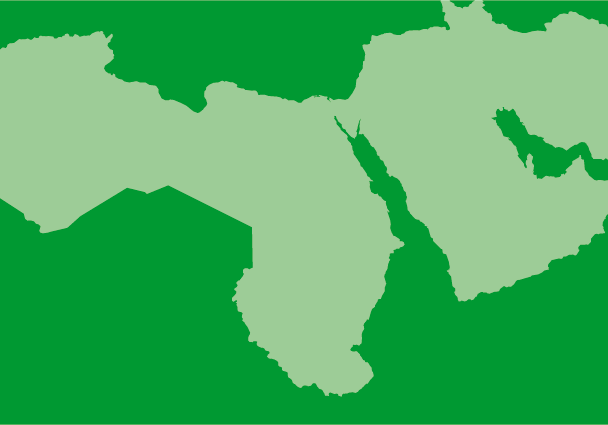
Oct 10, 2023 | Advocacy, News
The International Commission of Jurists (ICJ) condemns the direct attacks against civilians in Israel, including deliberate killings of hundreds of civilians, the taking of hostages and the launching of indiscriminate rockets against civilians and civilian objects, perpetrated by Palestinian armed groups since 7 October 2023.
“I abhor the deliberate targeting of civilians and hostage-taking, and condemn the horrific escalation of violence in Israel and the Occupied Palestinian Territory,” said Santiago Canton, ICJ Secretary General. “These atrocities are crimes under international law and must stop immediately. Civilians held hostages should be released.”
The ICJ also condemns Israel’s retaliatory airstrikes against buildings in densely populated areas in Gaza, which have killed hundreds of Palestinian civilians, and the measures of collective punishment taken against civilians in Gaza, including a total siege on food, water, electricity and fuel.
“I urge the Israeli authorities to refrain from engaging in indiscriminate retaliations or any form of collective punishment against civilians and from using starvation as a method of warfare,” said Canton.
The ICJ calls on all parties to the conflict to respect their obligations under international humanitarian law to protect civilians caught up in the hostilities and for accountability for the crimes under international law that have been perpetrated.
The attack led by Palestinian armed groups began on 7 October 2023, with thousands of indiscriminate rockets fired on Israel as well as incursions in Israel of armed combatants shooting civilians en masse and taking hostages to Gaza.
Israel retaliated with attacks against the Gaza strip through waves of airstrikes targeting several residential buildings and a mosque.
The death toll reported as of this morning, 10 October, was of at least 900 Israelis and at least 700 Palestinians, with more than 2,600 Israelis and 3,700 Palestinians injured.
While Israel has already cut off electricity and fuel supplies to Gaza, on 9 October the Israeli Defence Minister announced a complete siege of Gaza, including food and water, adding “we are fighting human animals and we are acting accordingly.” On the same day, Hamas threatened to execute an Israeli captive for every Israeli bombing of a civilian building without warning.
Background
Israel has imposed an air, land and sea blockade on the Gaza Strip since 2007.
The ICJ has documented Israel’s systematic human rights violations against the Palestinians in the Occupied Palestinian territory, such as forced evictions and displacement, restrictions on freedom of movement and arbitrary deprivations of life and liberty.
The ICJ has further documented attacks by Israeli forces and Palestinian armed groups in the Gaza strip in violation of the prohibition against deliberate or indiscriminate attacks against civilians, including as a result of the launch by Palestinian armed groups of thousands of indiscriminate rockets into Israel.
In February 2023, the ICJ called on the Israeli authorities to stop all actions amounting to the war crime of collective punishment of the Palestinian people in the West Bank and East Jerusalem, including house and property demolitions, arbitrary revocation of residency and citizenship rights and forcible deportation of Palestinians from the Occupied Palestinian Territory.
The ICJ recalls that willful killing, willfully causing great suffering or serious injury to body or health, unlawful deportation and taking of hostages committed against civilians and members of armed forces placed hors de combat, as well as extensive destruction of property not justified by military necessity and carried out unlawfully and wantonly, are grave breaches of the Fourth Geneva Convention and Additional Protocol I to the Geneva Conventions and amount to war crimes under the Rome Statute and customary international law. Intentionally directing attacks against the civilian population and civilian objects and intentionally using starvation of civilians as a method of warfare by depriving them of objects indispensable to their survival, including willfully impeding relief supplies as provided for under the Geneva Conventions, as well as measures of collective punishment against protected persons, also amount to war crimes.
Contact:
Said Benarbia, Director of the ICJ’s Middle East and North Africa Programme, email: said.benarbia(at)icj(dot)org
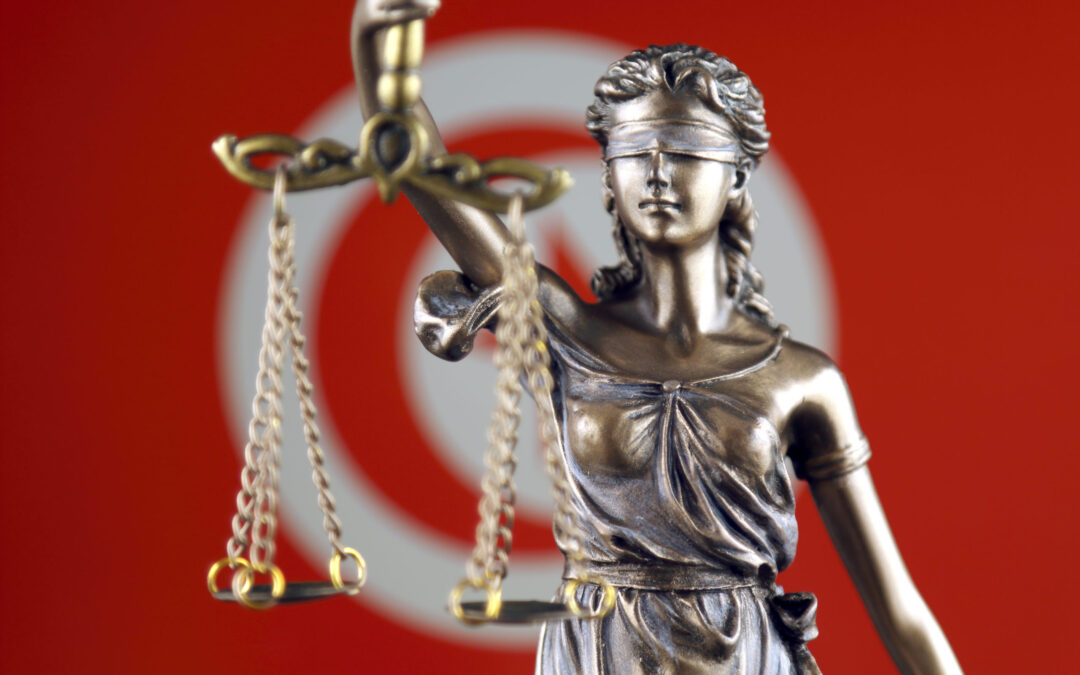
Oct 5, 2023 | News
The ICJ condemns the recent prosecution of two lawyers, Dalila Msadek and Islem Hamza, who act as defence counsel in a high-profile case involving political opposition figures. On 29 September 2023, the Public Prosecutor of the Tunis Court of First Instance initiated criminal proceedings against Dalila Msadek and Islem Hamza, who are members of the legal team defending a number of political opponents of the regime of Tunisia’s President, Kais Saied, some of whom have been detained since February 2023 for their alleged involvement in the so-called conspiracy case based on charges related to “terrorism” and “State security”.
البيان باللغة العربية على هذا الرابط
The ICJ further condemns the prosecution of Ayachi Hammami, also acting as defence counsel in the “conspiracy case”, who is scheduled to appear before the investigating judge of the “counter-terrorism” specialized judicial unit on 10 October 2023. Ayachi Hammami was informed that he was being prosecuted in the “conspiracy case” on 3 May 2023.
The prosecutions of Dalila Msadek, Islem Hamza and Ayachi Hammami are emblematic illustrations of a pattern of judicial harassment of lawyers representing individuals involved in political cases in Tunisia where the lawyers themselves are targeted solely because of their legitimate professional activities, ultimately underming their ability to defend their clients’ human rights, free from intimidation, hindrance, harassment or improper interference.
“This growing pattern of judicial harassment of lawyers solely for their legitimate discharge of their professional duties violates their human rights, including to liberty and security of person, fair trial, work and freedom of expression, as well as their clients’ right to a fair trial, including the right to defend themselves and to legal representation and assistance,” said Said Benarbia, ICJ MENA Director.
Dalila Msadek and Islem Hamza face charges of “spreading fake news with the aim of threatening public security through audio-visual media”, pursuant to article 24 of Decree-law 2022-54 of 13 September 2022, and of “processing of personal data relating to criminal offences, their investigation, criminal proceedings, penalties, preventive measures or criminal records”, pursuant to articles 13 and 87 of Organic Law No. 2004-63 on the protection of personal data. Dalila Msadek and Islem Hamza are being prosecuted in connection with statements they made on the radio on 28 and 29 September 2023 in which they mentioned having requested that the investigating judge of the ”counter-terrorism” specialized judicial unit should hear the diplomats whom their clients allegedly met as part of the “conspiracy” of which the prosecution accuses them.
Since June 2023, Islem Hamza has also been prosecuted in a separate case, under article 24 of Decree-Law 54, following a statement she made on the radio, in her capacity as a defence lawyer of arrested political opponents, denouncing the conditions of transfer of detainees as inhumane. Similarly, Ayachi Hammami has been prosecuted since January 2023 in a distinct case pursuant to Decree-Law 54 based on a statement he made in his capacity as a defence lawyer of the dismissed judges.
The ICJ considers that, to prosecute Islem Hamza, Dalila Msadek and Ayachi Hammami, the prosecution authorities have latched onto statements that Islem Hamza, Dalila Msadek and Ayachi Hammami made in the legitimate discharge of their professional duties as lawyers towards their clients. In addition, their statements constitute the protected exercise of their right to freedom of expression and, as such, cannot be subject to criminal prosecution under general principles of criminal law and international human rights law and standards.
Islem Hamza, Dalila Msadek and Ayachi Hammami are not isolated cases: Abdelaaziz Essid is also being prosecuted based on a statement he made as a defence lawyer in the “conspiracy case”. Moreover, Ghazi Chaouachi and Rhida Belhaj, who were representing other defendants in the “conspiracy case”, are being prosecuted in that very same case before the “counter-terrorism” specialized judicial unit.
“After arbitrarily detaining peaceful political opposition members, the authorities are increasingly using the criminal law to harass and intimidate defence lawyers and disrupt the legitimate discharge of their professional duties,” said Said Benarbia. “In so doing, they are sending the chilling message that any lawyers who represent defendants in political cases expose themselves to the risk of being prosecuted on spurious criminal charges.”
The ICJ calls on the Tunisian authorities to drop all criminal charges against all lawyers currently prosecuted solely for the legitimate discharge of their professional duties and the peaceful exercise of their right to freedom of expression and to immediately end all practices that hinder the work of lawyers.
Background
Since 2022, State authorities have increasingly targeted Tunisian lawyers for their legitimate defence work and for exercising their human rights. On 26 May 2023, several mandate holders of the UN Human Rights Council Special Procedures expressed concern over some of these cases.
According to information available to the ICJ, at least 27 lawyers are facing or have faced criminal prosecutions since 2022 based on charges related to, among others, “terrorism” and “State security”, or based on public statements critical of the executive. Among these, three – Noureddine Bhiri, Ghazi Chaouachi and Rhida Belhaj, who began a hunger strike on 2 October 2023 along with other detainees in the “conspiracy case” – are currently in detention; three other defence lawyers – Abdelrazak Kilani, Mehdi Zagrouba and Seifeddine Makhlouf – have been tried and imprisoned by military courts; and 15 others have been banned from traveling, including Lazhar Akermi following his release from pre-trial detention.
Lawyers, like any other person, enjoy the right to freedom of expression, as protected under human rights treaties to which Tunisia is party. These include the International Covenant on Civil and Political Rights and the African Charter on Human and Peoples’ Rights.
The UN Basic Principles on the Role of Lawyers and the African Commission on Human Peoples’ rights’ Principles and Guidelines on the Right to a Fair Trial in Africa reaffirm this principle and state that governments shall ensure that lawyers are able “to perform all of their professional functions without intimidation, hindrance, harassment or improper interference”, and “to travel and to consult with their clients freely both within their own country and abroad.”
The UN Special Rapporteur on the Independence of Judges and Lawyers has urged public prosecutors “ to closely monitor situations and cases in which lawyers might be criminalized for performing their duties. When such circumstances arise, appropriate orders should be issued to prevent public prosecutors from maliciously prosecuting members of the legal profession who criticize State officials and institutions in the exercise of their independence and freedom of expression.”








